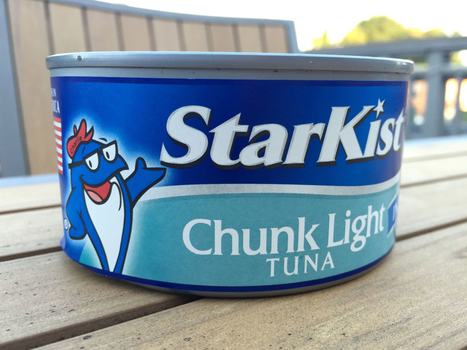DOJ Hooks a Big Fish: StarKist Guilty Plea Offers Some Takeaways for GCs
The last of three companies involved, StarKist agreed to plead guilty to a felony charge of price fixing on canned tuna fish, according to documents filed with the U.S. District Court for the Northern District of California.
October 19, 2018 at 04:50 PM
4 minute read
 (Photo: Diego M. Radzinschi/ALM)
(Photo: Diego M. Radzinschi/ALM)
Iconic Charlie the Tuna of advertising fame never seems to learn what the StarKist Co. wants, but Thursday it was the company's turn to learn a costly lesson in what federal antitrust prosecutors want.
The last of three companies involved, StarKist agreed to plead guilty to a felony charge of price fixing on canned tuna fish. It faces a whopping $100 million maximum fine, one to five years of probation and an unidentified amount of restitution, according to documents filed with the U.S. District Court for the Northern District of California.
Pittsburgh-based StarKist, a unit of Dongwon Industries, issued a statement saying it had cooperated with the U.S. Department of Justice during the course of its investigation and has accepted responsibility for its conduct.
Company president and CEO Andrew Choe said, “We will continue to conduct our business with the utmost transparency and integrity. While this process is long-term in nature, we have addressed the necessary actions required in this plea agreement, including continuing to strengthen related compliance best practices.”
Terms of the plea deal were not made public, and a sentencing hearing has not yet been scheduled.
Meanwhile, there are some key takeaways for general counsel in the prosecution:
“The dollar value is pretty high,” noted Colin Kass, a partner in the Washington, D.C., office of Proskauer Rose and co-chair of the antitrust group. “It shows that the U.S. Department of Justice is continuing to aggressively pursue criminal antitrust cases.”
The StarKist case was part of an industry probe by the Justice Department involving the three largest U.S. sellers of packaged seafood—StarKist, Bumble Bee Foods and Thai Union Group and its U.S. subsidiary, Tri-Union Seafoods, which sells Chicken of the Sea tuna.
Thai Union revealed in 2015 that it had entered DOJ's leniency program and was granted immunity from prosecution in return for disclosing how the collusion worked and who was involved.
Bumble Bee pleaded guilty to one count of price fixing in May 2017, and agreed to pay a $25 million fine that could escalate to $81.5 million in the event that the company is sold to another.
Bumble Bee's CEO was indicted for participating in the conspiracy in May of this year. Three other Bumble Bee executives have already pleaded guilty.
The price-fixing investigation began shortly after Thai Union sought to merge with Bumble Bee in 2014. The price collusion may have come to light during the attempted merger, Kass explained, because “companies produce thousands of pages of documents relating to competition.”
One of the things investigators found was that, while the demand for tuna was dropping over the years and the supply remained plentiful, the three companies were not lowering their prices. Prosecutors also found emails, texts and evidence of communication among the companies.
Kass said the prosecution “reinforces the concept that companies need to be very careful about inter-firm communications.”
The consequences can be very costly, Kass pointed out, not only for an antitrust case that can carry treble damages but also for the civil lawsuits that inevitably follow.
That's what happened here. Several grocery wholesalers and retailers, including Walmart Inc., sued the three companies for millions of dollars in overpayments for the tuna.
Kass advised, “If you are planning to merge, and especially if it is a concentrated industry, it is important to do some level of due diligence on emails and text messages before you file for approval of the merger.”
Otherwise, it could be DOJ saying, “Sorry, Charlie.”
This content has been archived. It is available through our partners, LexisNexis® and Bloomberg Law.
To view this content, please continue to their sites.
Not a Lexis Subscriber?
Subscribe Now
Not a Bloomberg Law Subscriber?
Subscribe Now
NOT FOR REPRINT
© 2025 ALM Global, LLC, All Rights Reserved. Request academic re-use from www.copyright.com. All other uses, submit a request to [email protected]. For more information visit Asset & Logo Licensing.
You Might Like
View All
Advance Auto Parts Hires GC Who Climbed From Bottom to Top of Lowe's Legal Department
2 minute read
Compliance With EU AI Act Lags Behind as First Provisions Take Effect

State AG Hammers Homebuilder That Put $2,000-Per-Day Non-Disparagement Penalty in Buyer Contracts
3 minute read
NBA Players Association Finds Its New GC in Warriors Front Office
Trending Stories
- 1States Accuse Trump of Thwarting Court's Funding Restoration Order
- 2Microsoft Becomes Latest Tech Company to Face Claims of Stealing Marketing Commissions From Influencers
- 3Coral Gables Attorney Busted for Stalking Lawyer
- 4Trump's DOJ Delays Releasing Jan. 6 FBI Agents List Under Consent Order
- 5Securities Report Says That 2024 Settlements Passed a Total of $5.2B
Who Got The Work
J. Brugh Lower of Gibbons has entered an appearance for industrial equipment supplier Devco Corporation in a pending trademark infringement lawsuit. The suit, accusing the defendant of selling knock-off Graco products, was filed Dec. 18 in New Jersey District Court by Rivkin Radler on behalf of Graco Inc. and Graco Minnesota. The case, assigned to U.S. District Judge Zahid N. Quraishi, is 3:24-cv-11294, Graco Inc. et al v. Devco Corporation.
Who Got The Work
Rebecca Maller-Stein and Kent A. Yalowitz of Arnold & Porter Kaye Scholer have entered their appearances for Hanaco Venture Capital and its executives, Lior Prosor and David Frankel, in a pending securities lawsuit. The action, filed on Dec. 24 in New York Southern District Court by Zell, Aron & Co. on behalf of Goldeneye Advisors, accuses the defendants of negligently and fraudulently managing the plaintiff's $1 million investment. The case, assigned to U.S. District Judge Vernon S. Broderick, is 1:24-cv-09918, Goldeneye Advisors, LLC v. Hanaco Venture Capital, Ltd. et al.
Who Got The Work
Attorneys from A&O Shearman has stepped in as defense counsel for Toronto-Dominion Bank and other defendants in a pending securities class action. The suit, filed Dec. 11 in New York Southern District Court by Bleichmar Fonti & Auld, accuses the defendants of concealing the bank's 'pervasive' deficiencies in regards to its compliance with the Bank Secrecy Act and the quality of its anti-money laundering controls. The case, assigned to U.S. District Judge Arun Subramanian, is 1:24-cv-09445, Gonzalez v. The Toronto-Dominion Bank et al.
Who Got The Work
Crown Castle International, a Pennsylvania company providing shared communications infrastructure, has turned to Luke D. Wolf of Gordon Rees Scully Mansukhani to fend off a pending breach-of-contract lawsuit. The court action, filed Nov. 25 in Michigan Eastern District Court by Hooper Hathaway PC on behalf of The Town Residences LLC, accuses Crown Castle of failing to transfer approximately $30,000 in utility payments from T-Mobile in breach of a roof-top lease and assignment agreement. The case, assigned to U.S. District Judge Susan K. Declercq, is 2:24-cv-13131, The Town Residences LLC v. T-Mobile US, Inc. et al.
Who Got The Work
Wilfred P. Coronato and Daniel M. Schwartz of McCarter & English have stepped in as defense counsel to Electrolux Home Products Inc. in a pending product liability lawsuit. The court action, filed Nov. 26 in New York Eastern District Court by Poulos Lopiccolo PC and Nagel Rice LLP on behalf of David Stern, alleges that the defendant's refrigerators’ drawers and shelving repeatedly break and fall apart within months after purchase. The case, assigned to U.S. District Judge Joan M. Azrack, is 2:24-cv-08204, Stern v. Electrolux Home Products, Inc.
Featured Firms
Law Offices of Gary Martin Hays & Associates, P.C.
(470) 294-1674
Law Offices of Mark E. Salomone
(857) 444-6468
Smith & Hassler
(713) 739-1250






